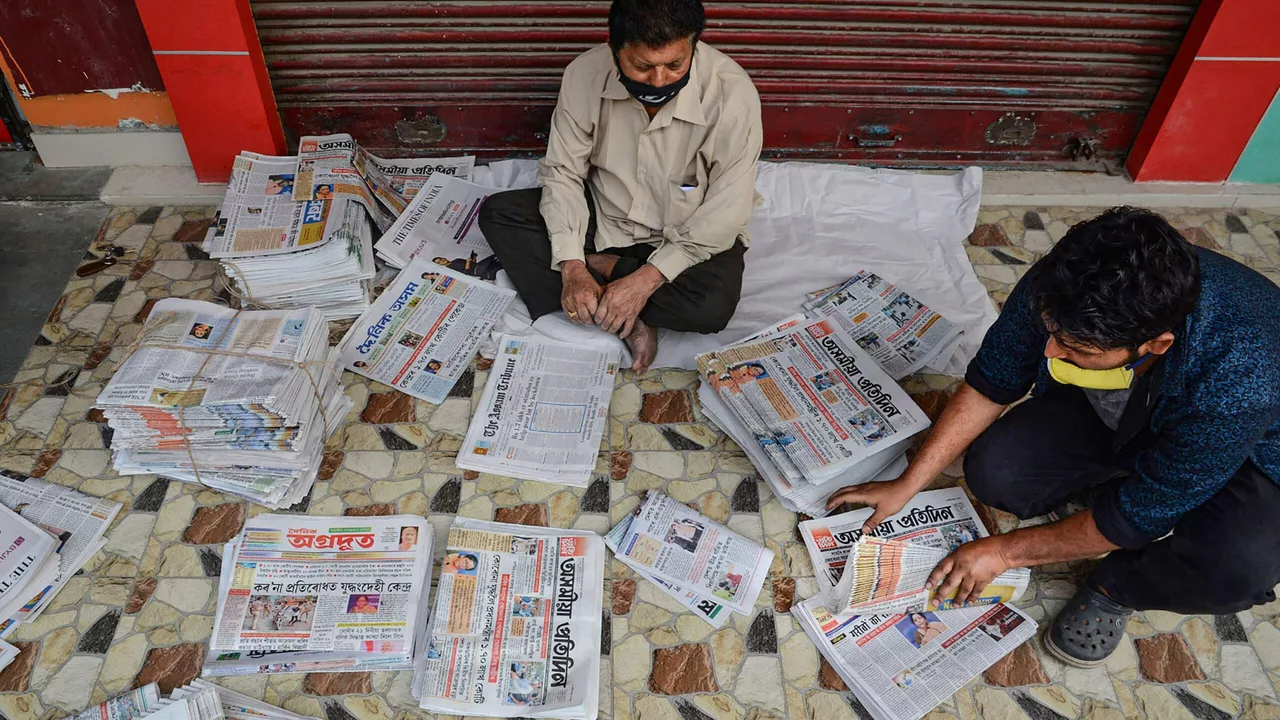Understanding the Heritage of The Times of India
On my morning meanders across Sydney with my ever-friendly labrador, Donut - an adventure that often involves a fair share of pulled-at-leashes and squirrel chases, I indulge in my daily ritual of reading the Times of India. A trusted and respected newspaper holding an esteemed position in the world of journalism, the Times of India has been serving its readers for 183 years. Upon my first encounter with the newspaper, what captured me was its rich lineage and depth of content. The journey of the Times of India, right from its inception in the flurry of independence, through the contentious political unrest in the 70s and 80s, and its revolutionary role in the 21st century vividly appear in its pages. I was engrossed, enamoured, and in many ways, inspired to see a newspaper survive and thrive in such volatile times.
Bridging the Gap between Knowledge, Information, and Ignorance
I recollect, on one of my many jaunts across India, my wife, Jessica, astutely observed the variation in regional cultures, languages, and landscapes. She likened India to a continent in itself, replete with complexities, confounding phenomena, and startling beauties waiting to be discovered. The Times of India, she rightly pointed, mirrored India's medley, knitting together narratives from across the country and presenting them on a single news platform. With its holistic coverage of issues, be it politics, mobility, sports, finance, arts, or lifestyle, the Times of India bridges the gap between knowledge and ignorance. While navigating through its diverse content becomes a regular intellectual exercise, it's idyllic for a man chasing curiosity.
Chronicle of Current Affairs and Unravelling of Perspectives
On a lazy Sunday last winter, while Akshay and Vidya were engrossed in their fantastical animated realm, I spent the morning immersed in an analytical piece in the Times of India - a detailed dissection of the socio-political climate in India. Before I knew it, Jessica brought in a tray of chai and pakoras, only to find me engrossed in my paper. The newspaper, I remarked, unravels perspectives, encourages deliberation, and inspires you to ruminate consciously on issues of societal import. A wide variety of OP-ED columns, book reviews, interviews, and special feature articles allow readers to deepen their understanding of current affairs and intricacies governing the world. The newspaper, you see, pushes the boundaries of a regular newspaper, metamorphosing into an incubator of ideas and discussions.
The Audi Alteram Partem Principle
Imagine, if you will, an impulse trip to a lively pub, only to find yourself amidst a passionate debate on some recent political fiasco. Drawing your chair closer, you realise the dearth of diligent dialogue as opposed to opinionated shouting matches. This, my friend, is where the Times of India steps in. With distinct viewpoints and thoughts presented, the newspaper elegantly epitomises the Audi Alteram Partem Principle - Hear the Other Side. We're not just reading news, but diving into a medley of informed opinions and legitimate arguments, maintaining a balanced perspective.
Embodying Journalism Ethics
Just six months ago, In the midst of heavy monsoons, while the rain played a soft serenade on our windowpanes, Jessica and I sat discussing the Tata-Mistry legal battle, her questioning the libel suit against the Times of India. That was a defining moment when I introspected on the newspaper's unswerving commitment to upholding ethical standards. Despite the constant legal hassles, defamation threats, and financial constraints, the Times of India remains resolute, producing trustworthy, unbiased, and fearless news reports. A beacon of independence, the paper has emerged as an exemplar of journalism ethics in India.
Conclusion - A Newspaper to Swear By
As Donut continues to romp around the park, snapping me out of my fond reverie, I can't help but smile at my habitual indulgence in the Times of India. It's more than just a newspaper; it's a knowledge companion, a social consciousness stimulator, and more importantly, a harbinger of enlightened discourse. Wednesdays mean business articles, Saturdays mean analysis of the week's events, while Sundays bring with them relaxed investigations into art and culture. For a newspaper enthusiast like me, it appears as a homecoming of sorts - absorbing knowledge, reckoning thoughts, and inciting inspiration, one day at a time.
